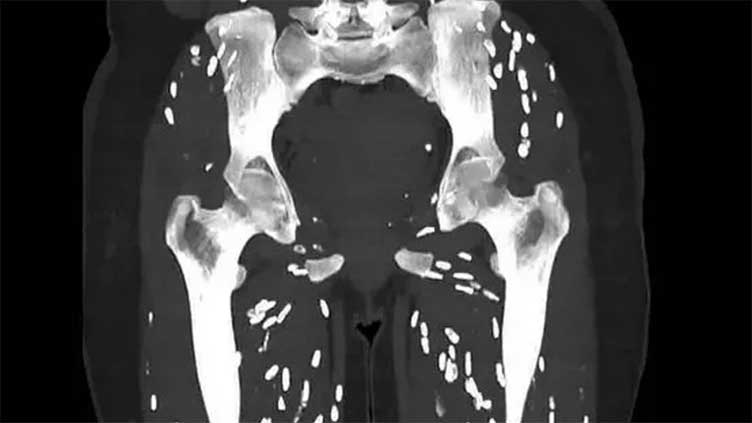Scans reveal why you must always wash your hands properly after using toilet

Symptoms of infection that can be passed on from not washing your hands properly
(Web Desk) - A disturbing scan described by a doctor as the "craziest" he's ever seen highlights why you should always give your hands a good wash after going to the toilet.
It shows the lower body of a patient, which is riddled with rice grain-like pinpricks - a telltale sign of a nasty parasitic infection that can spread to the brain, eyes or muscles.
The scan was shared by Dr Sam Ghali, an urgent care doctor from the University of Florida, who often shares images of bizarre and baffling conditions to his X account before revealing the diagnosis a day later.
"Here's one of the craziest scans I've ever seen," he said in a recent post accompanying the picture.
The doctor revealed that the patient in question was suffering from parasitic infection called cysticercosis.
It's an infection caused by the larvae of the parasite Taenia solium, which occurs after a person swallows tapeworm eggs.
This may happen if you ingest contaminated food or water.
About 2.5million people are thought to be infected with Taenia solium every year, most frequently in the poorer regions of Asia, South America and Eastern Europe.
According to Dr Ghali, T. solium eggs can be found in undercooked pork - though the Centers for Disease Control and Prevention (CDC) notes that eating pork can't give you cysticercosis.
But you can also get the infection from someone who doesn't wash their hands properly after going to the loo, as eggs are passed in on in the poop of someone with a tapeworm.
Once you've ingested tapeworm eggs - through contaminated food and water or touching contaminated surfaces - they mature into adult tapeworms over a period of several weeks.
This is a condition called intestinal taeniasis, Dr Ghali explained.
"These adult tapeworms then shed eggs which are in turn excreted into human faeces," the doctor went on.
"It's very important to note that it is only when these eggs are ingested via faecal-oral transmission that one can develop the clinical syndrome known as cystericosis," he noted.
In these cases, the eggs will release larvae that penetrate the intestinal wall before invading the bloodstream, allowing them to spread "to literally anywhere in the body".
Dr Ghali described how larvae can burrow into skeletal muscles, tissue just under the surface of the skin, the eyes and even the brain, forming cysts known as cysticerci.
The body's immune system typically kills offthe cysts, which calcify and form "rice grain"-like nodules that are visible in the scan.
If the larvae do end up travelling to the brain tissue and form cysts - referred to as neurocysticercosis - this can be "really bad", according to Dr Ghali.
"This can lead to headaches, confusion, seizures, and other serious neurologic issues," he warned.
According to the CDC, symptoms of cysticercosis will depend on the number of cysts that have formed and where in the body they have ended up.
Infections are generally treated with a combination of anti-parasitic drugs and anti-inflammatory drugs, but "treatment isn't always necessary for every case of cysticercosis," it went on.


